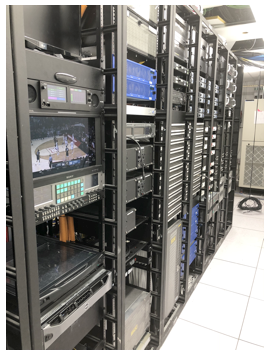Tech Cos. Push Immigration Reform Bill

The smarter way to stay on top of the multichannel video marketplace. Sign up below.
You are now subscribed
Your newsletter sign-up was successful
Tech types are pushing Congress to pass the Fairness for High-Skilled Immigrants Act as part of its ongoing effort to attract the best and brightest tech minds from wherever they are.
The bill, sponsored by Rep. Zoe Lofgren (D-Calif.) passed House July 10 and is given a strong chance of passage in the Senate.
Lofgren's office said the bill has over 200 Democratic co-sponsors and 100 Republicans.
A version of the bill was referred to the Senate Judiciary Committee this week by sponsor Mike Lee (R-Utah).
“We have long advocated for changes to our immigration system—such as the Fairness for High-Skilled Immigrants Act—that allow U.S. employers to attract and retain the world’s best and highly educated employees in order to compete in a global marketplace,” said tech association ITI president Jason Oxman. “Removing the antiquated per-country limits on employment-based visas is critical to maintaining our competitiveness as a nation. We commend Senator Lee (R-UT) and Senator Kamala Harris (D-CA) for their bipartisan leadership on this issue, and urge the Senate to pass this legislation."
The Consumer Technology Association has also long pushed for allowing more high-skilled workers into the country to diversify the tech brain trust.
“CTA has fought for years to modernize our immigration laws so that top talent from around the world can contribute to the U.S. economy and create jobs in America," said Consumer Technology Association president Gary Shapiro. "The effort by Sens. Mike Lee and Kamala Harris (D-Calif.) to remove arbitrary per-country limits on employment-based visas is an important step toward a more fair and effective immigration system. The House of Representatives overwhelmingly voted to get rid of per-country limits earlier this year when it passed the bipartisan Fairness for High-Skilled Immigrants Act. We now encourage the Senate to find a path forward for these reforms.”
The smarter way to stay on top of the multichannel video marketplace. Sign up below.
Specifically, the bill would:
1. "Eliminate the “per country” cap for employment-based immigrant visas so all workers are treated equally.
This provision would be implemented over a 3-year phase-in period: during year one, no more than 85 percent of employment-based visas may be allocated to India or China; in years two and three, no more than 90 percent of employment-based visas may be allocated to India or China. Also during this period, a safety provision would prevent visas from going unused.
2. "Ensure that immigrants who have an approved employment-based visa petition prior to the bill’s date of enactment don’t lose their place in line.
3. "Raise the “per country” cap for family-sponsored immigrant visas from 7 percent to 15 percent."
Contributing editor John Eggerton has been an editor and/or writer on media regulation, legislation and policy for over four decades, including covering the FCC, FTC, Congress, the major media trade associations, and the federal courts. In addition to Multichannel News and Broadcasting + Cable, his work has appeared in Radio World, TV Technology, TV Fax, This Week in Consumer Electronics, Variety and the Encyclopedia Britannica.

